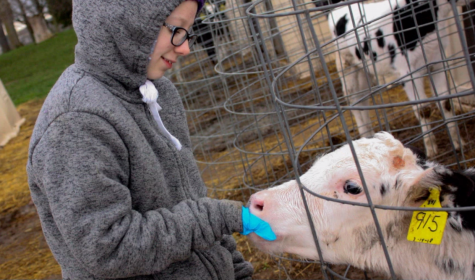A New Generation Goes to Work
June 12, 2018
According to numerous recent unemployment statistics, the country is currently at full employment.
But, what exactly does that mean?
It means that unemployment is as low as it can possibly go without inflation beginning to rise.
However, youth unemployment still has not recovered since the economic downturn of 2007-2008, in which young people disproportionately felt the brunt of economic turmoil.
Despite that, Generation Z, the age group immediately succeeding the millennials and usually described as consisting of people born in 2000 or later, has been described by Forbes Magazine as the most thrifty, economical and conservative since World War II.
One study by CitiBank and Seventeen Magazine indicated that 80 percent of high school, college and community college students have at least a part-time job, working an average of 19 hours per week.
Some are even questioning whether Generation Z is destined to become a society of workaholics.
Every high school is ground zero for the kind of economic pioneer that is making Generation Z into a fiscal powerhouse.
For example, senior Kyle Lilley currently works for Gee Farms nursery in Stockbridge as a laborer.
“I like my job because I like being able to make and save my own money for stuff that I want,” Lilley explained. “Last year I bought a car.”
Lilley is not alone, however, as many students are immersing themselves in the art of saving and spending money.

With a calf sucking on her fingers, sophomore Hannah Beauchamp cares for and feeds it some nutritious milk before going back to work at Sweet Acre Farms.
Whenever a conversation of Generation Z takes place one of the most commonly used terms is economic anxiety.
This anxiety stands from watching their parents lose their savings and in some cases their homes due to economic tumult.
As a result, Generation Z attempts to keep a tight grip on their wallets in an attempt to being caught in another economic setback, similar to how the Greatest Generation hoarded money with the deep seated, gnawing fear of the Great Depression never far from their minds.
As a result, Generation Z have become devoted savers in anticipation of future economic hardship.
Despite recently being plunged into recession, the economy has shown signs of recovering as more and more students join the workforce, pay taxes, spend money, and save for their futures.
Senior Jade Heaviland, who works at AKA Sushi in Jackson as a host, believes, “It’s important [to have a job] because it teaches you certain skills that the school doesn’t teach you,” Heaviland explained. “There are certain things a job teaches you that you will have to learn in order to be successful.”
As time goes on, more and more students join the system that keeps the wheels of the economy turning in a way that gives many economists hope for the future.

